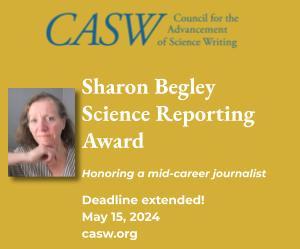In the world of freelance writing there are a number of common contracts: magazine contracts, book publishing contracts, licenses, permissions, non-disclosure agreements, collaboration agreements, independent contractors' agreements, and agency agreements.
At their core, these contracts, like all contracts, are a promise to do something. Most of the time, a contract does not have to be in writing or have a signature to be enforceable, but it's always best to play it safe and get it in writing. There is nothing magical or highly technical about contracts or their language. With the exception of certain legal terms of art, the rules that apply to good writing in general are applicable to writing good contracts.
First, a good contract must be clear. The same "W" questions that are important for writers will serve you well in reviewing a contract: who, when, and what. Clarify who by making it clear who is acting and by never using the passive voice. For example, the phrase "permissions shall be obtained" is not clear because it does not specify who will do that job. Clarify when by always making sure the contract contains deadlines or time frames for each action such as acceptance, edits, and payments. Clarify what by avoiding undefined terms, vague terms, and matters left to the discretion of one party.
Second, redundancy is generally the enemy of clarity. Remove redundant clauses, particularly when they conflict with each other. It is not uncommon to see redundant grants of rights and indemnities. But repeating something two or three times in slightly different ways makes it weaker, not stronger. Also be aware that conflicting clauses may be in different parts of the contract or right next to each other.
Third, a good contract must be complete, in that it fully tells the story of your understanding with the other party. It is important that all terms you discussed with your editor, agent, or collaborator be included in your written agreement. When you are close to the end of the process, ask yourself, "Is this contract sufficient to convey all of my understandings with the other party to a complete stranger?" If something is missing, write it in. Most courts will look at your written agreement as the culmination of your negotiations; they tend to assume that matters discussed prior to written agreement but not included in the agreement were omitted purposely. So, if an editor promises something to you, get it in writing. And the earlier you do it, the easier it will be. Remember, just because your editor is easy-going does not mean that the higher-up editors will be. And what could happen if your editor left the company?
Now a word about negotiating and mechanics. It's not only acceptable to negotiate, but you should strongly consider rejecting the first offer. Few people lead with their best offer. Have a bottom line and know when to walk away. Moreover, there is no such thing as a standard contract. If someone tells you that a contract cannot be changed, they are wrong. Someone may tell you that they won't change a contract for you, but that is different and you should think about whether you want to do business with them.
Here is a negotiating tip: Make clarity and completeness work to your advantage by characterizing your proposed edits as being for the sake of clarity. It is hard for the other side to argue that they prefer vagueness and ambiguity.
While you might not want to accept the first offer, do not insist on endless rounds of edits to the point that you inflict "negotiation fatigue" on the other side. It's unprofessional to nitpick a contract without regard to the context and the benefit to you. The changes you propose must be strategic and you must persuade the other side that they are important to you.
Anthony N. Elia practices law in New York City. He can be reached at 718-854-2361 or at www.anelaw.com. A slightly different version of this article first appeared in the Society of American Travel Writers Traveler.
.png)

